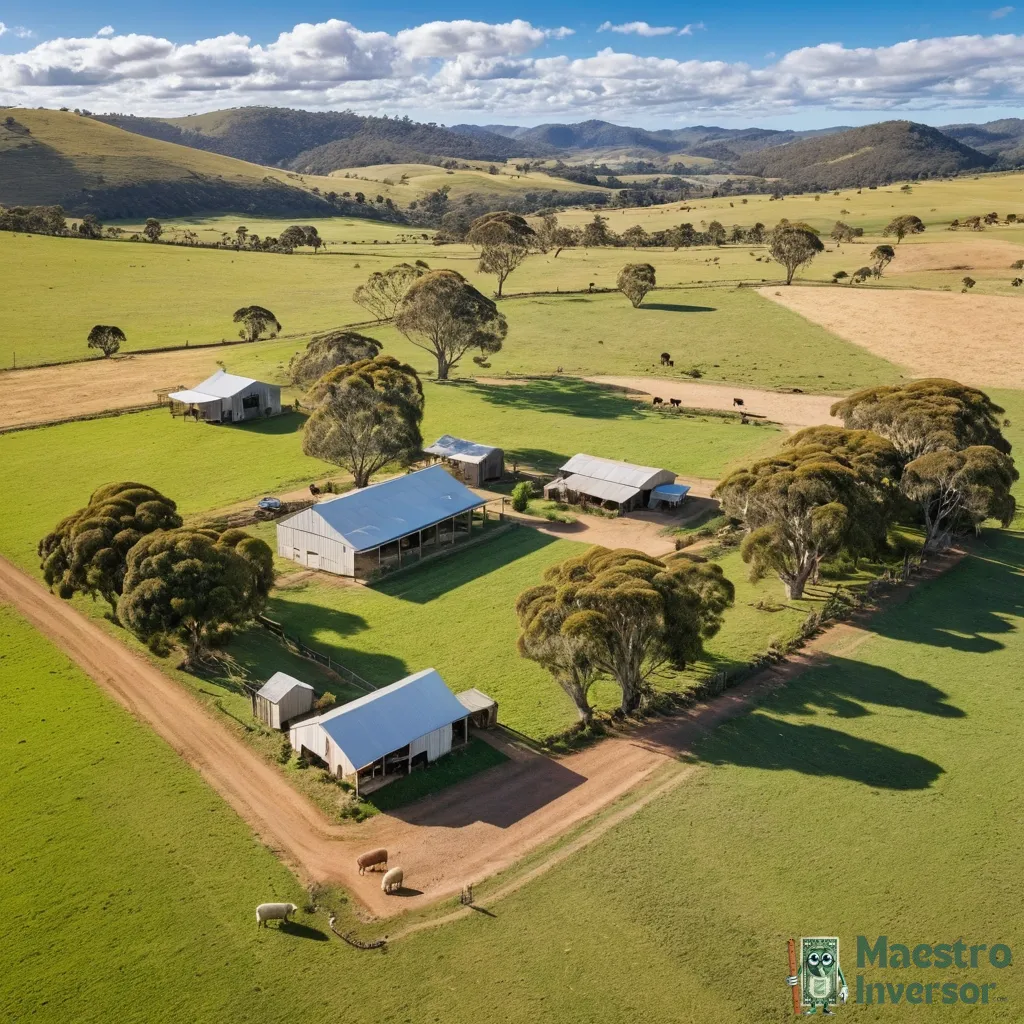
Starting a small farm business in Australia can be a rewarding and profitable venture, but it requires careful planning, research, and execution. With the country’s diverse climate and geography, there are plenty of opportunities to grow a wide range of crops and raise various types of livestock. However, it’s essential to understand the local market, regulatory requirements, and best practices to ensure the success of your farming business. In this article, we’ll provide a comprehensive guide on how to start a small farm business in Australia, covering everything from choosing the right location to marketing your products.
Choosing the Right Location
The location of your farm is critical to its success. You’ll need to consider factors such as climate, soil quality, water availability, and proximity to markets. Australia has a vast and varied landscape, with different regions suitable for different types of farming. For example, the eastern states are ideal for growing crops such as wheat, barley, and canola, while the western states are better suited for livestock production. When selecting a location, consider the following factors:
- Climate: Consider the average temperature, rainfall, and sunshine hours in the area.
- Soil quality: Assess the soil type, fertility, and drainage to determine its suitability for your chosen crops or livestock.
- Water availability: Ensure access to a reliable source of water for irrigation, drinking, and other farm uses.
- Proximity to markets: Consider the distance to your target markets, including transportation costs and logistics.
- Zoning and regulations: Check with local authorities to ensure that your planned farming activities are permitted in the area.
Conducting a Feasibility Study
Once you’ve selected a potential location, it’s essential to conduct a feasibility study to determine the viability of your farming business. This study should include an analysis of the local market, competition, and potential revenue streams. You’ll also need to assess the costs associated with establishing and operating your farm, including:
- Land purchase or lease costs
- Equipment and infrastructure costs
- Labor costs
- Input costs (seeds, fertilizers, etc.)
- Marketing and distribution costs
A thorough feasibility study will help you determine whether your farming business is likely to be profitable and sustainable in the long term.
Developing a Business Plan
A well-developed business plan is essential for any farming enterprise. This plan should outline your goals, objectives, and strategies for establishing and operating your farm. It should also include financial projections, marketing plans, and operational details. A good business plan will help you:
- Define your mission and vision
- Conduct market research and analysis
- Develop a marketing strategy
- Create a financial plan and budget
- Outline operational procedures and management structures
When developing your business plan, consider seeking advice from experienced farmers, agronomists, or business advisors to ensure that your plan is comprehensive and realistic.
Obtaining Necessary Licenses and Permits
Before starting your farming business, you’ll need to obtain the necessary licenses and permits from local, state, and federal authorities. These may include:
- Business registration and tax registration
- Farming licenses and permits (e.g., for water use, chemical application, etc.)
- Environmental permits (e.g., for waste management, etc.)
- Food safety certifications (if applicable)
It’s essential to research and comply with all relevant regulations to avoid fines, penalties, or even business closure.
Marketing and Selling Your Products
Once your farm is up and running, you’ll need to develop a marketing strategy to sell your products. This may include:
- Building relationships with local wholesalers, retailers, or restaurants
- Creating a website or social media presence to promote your products
- Participating in farmers’ markets or agricultural events
- Developing a direct-to-consumer sales model (e.g., community-supported agriculture programs, etc.)
Consider seeking advice from marketing experts or attending workshops to learn more about effective marketing strategies for your farming business.
In conclusion, starting a small farm business in Australia requires careful planning, research, and execution. By choosing the right location, conducting a feasibility study, developing a business plan, obtaining necessary licenses and permits, and marketing your products effectively, you can set your farming business up for success. With the right mindset and support, you can build a profitable and sustainable farming enterprise that contributes to the country’s agricultural sector and local communities.
